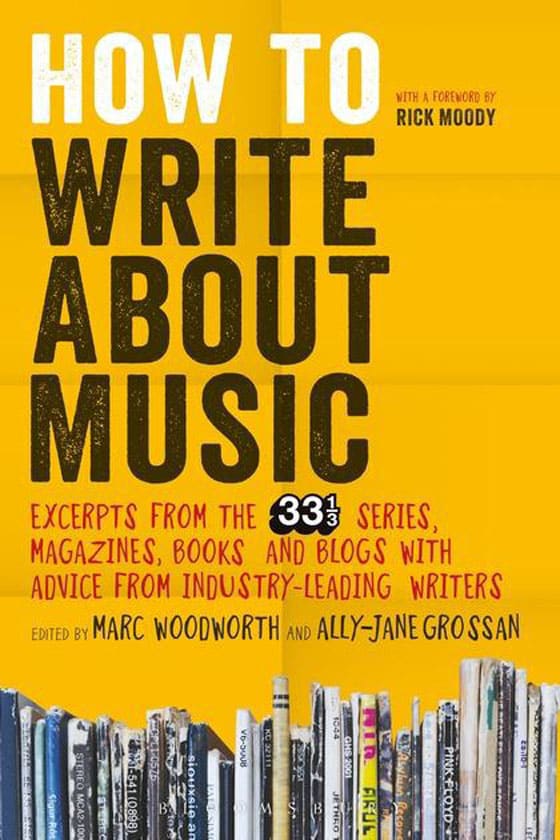The rise of blogs and social media in the last decade has made getting one's opinion out to an audience simpler than ever; it's writing about music well that's become more complicated. It's that tension, between the broad accessibility and deceptive difficulty of music writing, that makes the mission of How to Write About Music, a new textbook-style book from Bloomsbury and the people at 33 1/3 books, a difficult one.
It's a straightforwardly instructive read, organized nicely. Each of How to Write About Music's chapters about a different type of music writing — the album review, analysis, the artist interview, etc. — and each of those chapters comprises an introduction, advice from professional writers and editors, a handful of previously published examples and a writing prompt or two, encouraging the reader or student to try writing that type of piece themselves.
That How to Write About Music is essentially the first book of its kind makes it a no-brainer purchase for amateur music writers, and yet there's a seeming discrepancy underlying the book's purpose. To a new writer, the staggering amount of advice here, from a huge number of professionals, might be overwhelming, especially given that not all of it is consistent. There's advice here, for example, that contradicts that given on the previous page, not to mention that much of it comes from critics who have been writing about music for decades — their suggested methods of music writing might be well suited to them and other established writers, but it seems at times unproductive for beginners. One writer suggests forgoing any form of note taking for a concert review; another purports not to prepare questions for artist interviews.
All of which seems to confirm what Rick Moody postulates in the book's introduction: that music writing is too varied and too fluid to apply universal rules to. That's undoubtedly a good thing — the shifting perception in the past decade of what makes "good" music writing has allowed for new voices to be heard, new perspectives seen and new canons formed — but it makes learning how to write about music from critics whose heyday was in the '80s (and there are plenty here) seem antithetical.
Music writing is in a state of flux, and How to Write About Music is at its best when the editors acknowledge that fact, emphasizing to readers that advice can only go so far and suggesting that it's okay to rewrite the rules, once you've read them. Read this book, and then throw it away.
(Bloomsbury)It's a straightforwardly instructive read, organized nicely. Each of How to Write About Music's chapters about a different type of music writing — the album review, analysis, the artist interview, etc. — and each of those chapters comprises an introduction, advice from professional writers and editors, a handful of previously published examples and a writing prompt or two, encouraging the reader or student to try writing that type of piece themselves.
That How to Write About Music is essentially the first book of its kind makes it a no-brainer purchase for amateur music writers, and yet there's a seeming discrepancy underlying the book's purpose. To a new writer, the staggering amount of advice here, from a huge number of professionals, might be overwhelming, especially given that not all of it is consistent. There's advice here, for example, that contradicts that given on the previous page, not to mention that much of it comes from critics who have been writing about music for decades — their suggested methods of music writing might be well suited to them and other established writers, but it seems at times unproductive for beginners. One writer suggests forgoing any form of note taking for a concert review; another purports not to prepare questions for artist interviews.
All of which seems to confirm what Rick Moody postulates in the book's introduction: that music writing is too varied and too fluid to apply universal rules to. That's undoubtedly a good thing — the shifting perception in the past decade of what makes "good" music writing has allowed for new voices to be heard, new perspectives seen and new canons formed — but it makes learning how to write about music from critics whose heyday was in the '80s (and there are plenty here) seem antithetical.
Music writing is in a state of flux, and How to Write About Music is at its best when the editors acknowledge that fact, emphasizing to readers that advice can only go so far and suggesting that it's okay to rewrite the rules, once you've read them. Read this book, and then throw it away.
